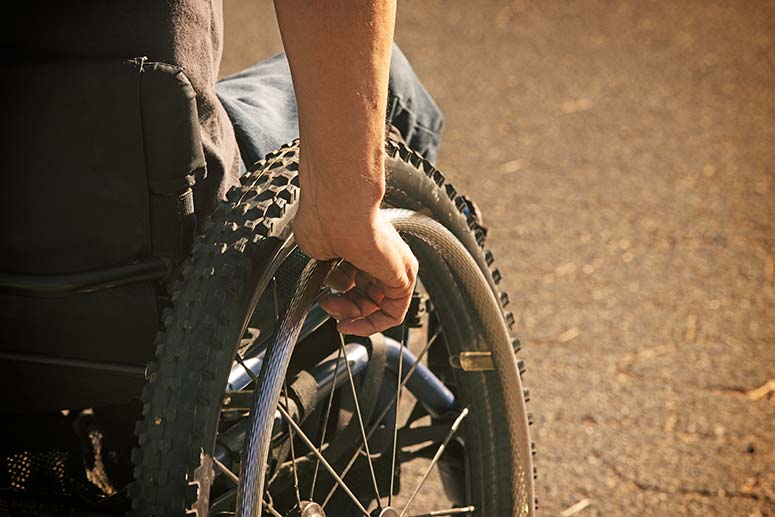Life during Covid-19 may prove particularly stressful for those suffering from a spinal cord injury. Knowing what steps to take to manage your emotions can help tremendously.
Life during uncertain times such as the Covid-19 pandemic can be stressful. Whilst it is common to feel worried, sad or anxious –especially for spinal cord injury survivors who have already experienced sweeping changes in their lives – when these worries prevent you from getting on with daily life, they can lead to serious mental health issues.

There are, however, tips and techniques available to SCI patients on how to look after and manage psychological and mental health. We will outline them here.
One way is to organise and structure your day to benefit your well-being. The change in people’s daily routines as a result of the pandemic can be unsettling. There will be things and activities you did for your well-being under normal circumstances that you may feel you have lost control over. The important thing is to focus on choices and coping strategies that are within your control.
Try organising your days to include a variety of activities you know you can do, and you know will bring you pleasure or satisfaction. This could be completing an exercise routine, learning to cook a new recipe, reading a few chapters from a book or even scheduling a video call with family and friends. Completing these tasks, however simple, will give you a sense of accomplishment and feeling of normality.
Another way is to think of anxiety as a continuum of zones. On one side, you have the fear zone, where your thoughts and actions are reactionary and negative. On the opposite side is what we call the growth zone. In the growth zone, you are not only aware of your feelings of anxiety and worry, but you are able to take a step back, assess your reasons for this anxiety, and take positive actions towards reducing it.
In uncertain times, we often allow our worries to escalate to the point where we can only imagine worst-case scenarios. To reduce this type of worry, it’s important to practice noticing when your worrisome thoughts are reaching a more catastrophic point. Ask yourself some questions, such as “What was I just thinking?” or “Why was I thinking that?” Step back to the event that initiated your worry and ask yourself if the event truly will lead to worst-case scenarios or if there are other explanations for you to consider about a situation for which the outcome is unknown.
Another method of controlling worry is designating for yourself “worry time”. You know there are things that will be weighing heavy on your mind. Instead of letting them control your every thought and action, set aside some time later in the day and allow yourself to worry then. This prevents worry from interfering with and controlling your life and often, in the case of postponing your worries, you circumvent the worry from happening at all.
So, whilst the Covid-19 pandemic has brought about many uncontrollable changes in the lives of those with an SCI, if you can focus on what you can control – choosing a routine and choosing tasks that you can accomplish – you can give yourself the best chance to improve your psychological and mental well-being.









